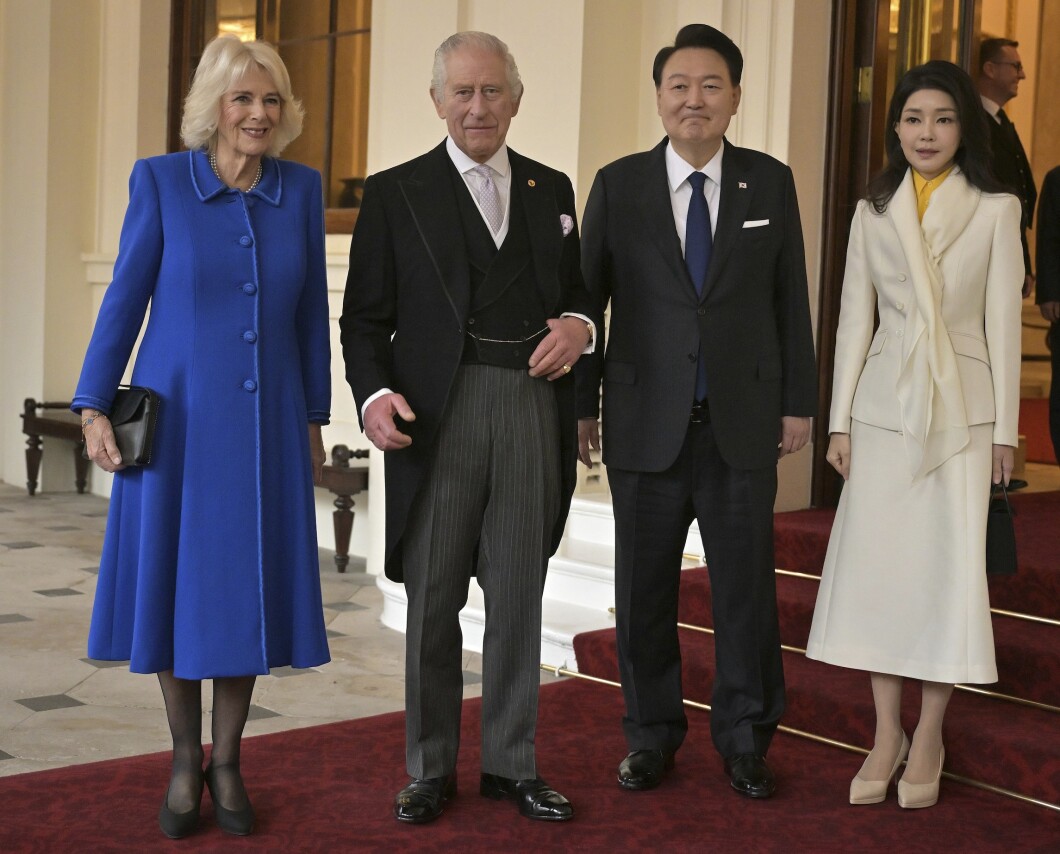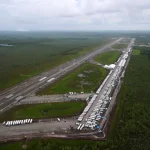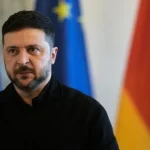
Few countries have gained as much geopolitical street cred in as many places over the last two years as South Korea.
“Yeah, they are good, absolutely,” a senior European official said at the mention of the Korean democracy.
WORLD’S TWO MOST IMPORTANT SHIPPING CANALS NOW FACING SERIOUS DELAYS
For much of its history, South Korea’s foreign policy outlook has been dominated by the persistent threat of renewed conflict with North Korea — the communist regime whose invasion of the south in 1950 triggered an intervention from the United States under the auspices of the United Nations. Now, under a president eager for his country to function as a “global pivotal state,” the Northeast Asian democracy plays a key role in trans-Atlantic military and economic security calculations.
“It’s a very important country nobody was talking about,” the senior Baltic official said. “South Korea [was viewed] only as a good example of resisting the evil north, [its] evil neighbor, but not very much in public. All the other big, big boys were more visible, definitely more visible.”

South Korean President Yoon Suk Yeol has made his presence felt around the world over the last year — especially in Washington, D.C., where he delighted a White House audience with his rendition of Don McLean’s “American Pie” during a state dinner in April. He has also made state visits to Saudi Arabia, Qatar, the United Kingdom, and, most recently, the Netherlands — where he declared a “semiconductor alliance” that includes a $755 million deal between Samsung and ASML, the Dutch company that manufactures the equipment needed for the production of computer microchips.
“If that kind of alliance and partnership really carries forward, they’re going to be a global juggernaut,” Rep. Mike Waltz (R-FL), a member of the House Intelligence Committee and the House Foreign Affairs subcommittee for Asia and the Pacific, told the Washington Examiner.
That deal could make it easier for Samsung to comply with the export controls that President Joe Biden’s administration has imposed in order to curtail China’s access to high-end microchips, analysts say. And it could offset global reliance on chips produced by Taiwan, the island democracy that dominates the high-end semiconductor market but faces growing threats of violence from China.
“From the perspective of the U.S., that relationship is also meaningful because … chips that are made in South Korea are probably an important margin safer than chips that are made in Taiwan or in China,” American Enterprise Institute visiting fellow Chris Miller, an economic historian and author of Chip War: The Fight for the World’s Most Critical Technology, told the Washington Examiner. “If you think of wanting to have a bit more diversified manufacturing base, globally, of chips, Korea is an important part of that.”
South Korea already has emerged as a crucial player in the Ukrainian military’s supply chain. Inaugurated in the first months of a war in Europe that soon exposed a Western ammunition shortage, Yoon first agreed to backfill European shipments to Ukraine and then reportedly provided more “artillery ammunition for Ukraine than all European nations combined,” albeit through an indirect delivery process coordinated with the U.S.
“They were hesitant, but, I think, the last straw for them was when North Korea started to send artillery shells for Russia,” the senior European official said.
Those ammunition shipments built on a rash of arms deals that have seen South Korea move into the top ranks of global weapons exporters. Poland has made plans “to purchase over $3 billion in South Korean arms to replace equipment sent to assist Ukraine,” according to Congressional Research Service estimates, including almost 700 of the howitzers and about 1,000 tanks.
“There’s a vacuum in terms of where to go for high-quality defense equipment because the Europeans have so underinvested in themselves,” Waltz said. “South Korea has, rightly, from their perspective, tried to fill that void. And you’re starting to see that from Estonia to Poland and other places.”
Yoon returned to the U.S. in August for a trilateral summit with Biden and their Japanese counterpart, Prime Minister Fumio Kishida — a sea change from 2019, when South Korea threw a wrench into an intelligence-sharing mechanism due to a controversy over imperial Japanese human rights abuses during the occupation of Korea before and during World War II.
“The Chinese have noted the actions that we have taken,” Kurt Campbell, the lead White House official for the Indo-Pacific and Biden’s nominee for the No. 2 job at the State Department, told the Senate Foreign Relations Committee during his Dec. 7 nomination hearing. “The thing that I think they recognize has the potential, the most significance in changing the security architecture of Asia, is if Japan and South Korea can finally and fundamentally put their animosity behind them to focus on the future in everything — energy, technology, security, people-to-people education.”
South Korea and Japan also have attended the last two NATO summits, along with Australia and New Zealand. As recently as two years ago, it was possible to wonder if the popularity of K-pop or a television show such as Squid Game would translate into “a more active role in contemporary international politics,” as a former CIA analyst mused in Foreign Affairs magazine. Within months, Russia’s full-scale war in Ukraine upended the conventional wisdom in capitals around the world — and revealed South Korea to be perhaps the most underestimated member of the U.S. alliance network.
“It’s in the U.S. interests to have countries that we’re basically aligned with having stronger bilateral relationships with each other,” Miller said. “It’s hard business if the U.S. has to constantly get all the ducks in a row and push all the allies to think strategically. And I think it’s a good sign that you have countries like the Netherlands, like Korea … taking these issues more seriously.”
CLICK HERE TO READ MORE FROM THE WASHINGTON EXAMINER
And, for the Western officials most wary of threats from Russia, South Korea stands as an example of the long-term return on investment U.S. policymakers should keep in mind as they debate whether and how to continue aiding Ukraine.
“South Korea, I think, is the best example of how … it pays off when the U.S. and the free world will come behind the country which struggles against communists’ invasion,” the senior European official said. “It doesn’t matter whether it’s a czar or a communist empire or a Russian president.”





